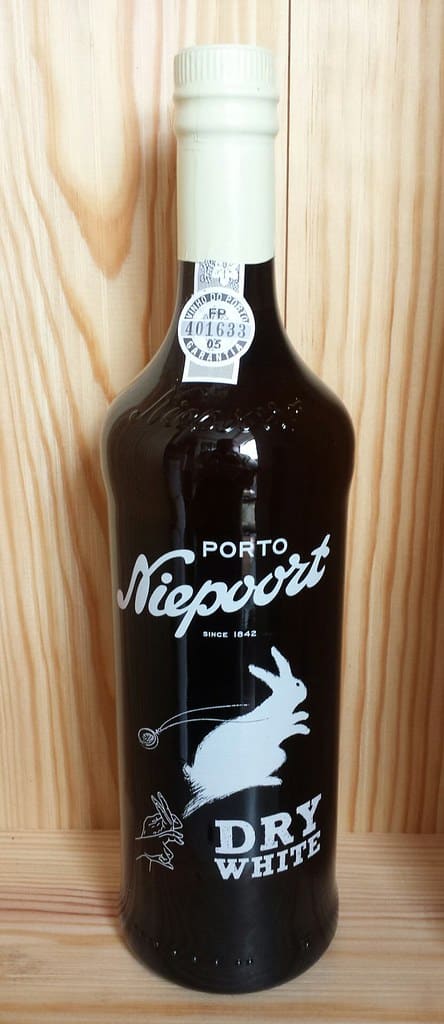Do you love the flavor of Marsala wine but don’t have any on hand? Don’t worry; plenty of ingredients can easily be used as substitutes for marsala wine to help you create the perfect dish.
Marsala wine is a fortified Italian wine with a rich and sweet flavor from Sicily. It has earned a place in many classic Italian dishes and modern recipes.
However, sometimes you may not have access to it when cooking or need to opt out of using alcohol due to dietary restrictions or religious beliefs.
Fortunately, several alternatives to using Marsala wine in your cooking can still give you the same delicious taste without compromising nutritional value or texture.
This article will look at some of the best substitutes for Marsala wine so that you can easily recreate your favorite Italian dishes.
What Is Marsala Wine?
Marsala wine is made in the Italian region of Sicily . It is named after the Italian town of Marsala, which borders this wine-producing region.
This beverage is a fortified wine, comparable to Sherry or Madeira, that has long been used as a cooking wine. It can also be consumed as a beverage, with or without food.
Both dry and sweet Marsala is widely available in liquor stores, supermarkets, and wine clubs worldwide.
A real Marsala from Sicily boasts tantalizing flavors like stewed apricot, brown sugar, notes of vanilla, and tamarind.
Wine aficionados may detect smokey tobacco or oak flavors when consuming this wine.
These different characteristics make meals like Chicken Marsala taste so delicious when this wine is used as one of the ingredients.
Licorice, dried fruits, Morella cherry, honey, apple, and walnut subtleties can be found in some of the best Marsala wines.
This fortified wine is prepared from white grape varieties native to the region, including Damaschino, Grillo, Inzolia, and Catarrattto.
Red grapes are occasionally incorporated into the blend, and all Marsala wines are fortified with brandy or a similar neutral distilled spirit.
We’ll get to know the varieties of substitutes for marsala wine now!
Best Substitutes for Marsala Wine
1. Dry White Wine

Dry white wine is the starter of this list of substitutes for marsala wine.
Many recipes that call for marsala wine can easily be adapted to dry white wine, offering a similar flavor profile and not requiring the caramelization of sugar like in marsala wine.
Dry white wines tend to have a crisp and clean taste making them an excellent option for baking and cooking.
The differing acidity levels between specific varieties of dry white wines allow cooks more flexibility when selecting a substitute, depending on the desired result.
It is best to balance sweetness and acidity to replace marsala with dry white wines because traditional marsala is sweet but dry.
Varieties such as Pinot Grigio, Sauvignon Blanc, or Chenin Blanc are good options if looking for an appropriate substitute.
2. Pinot Noir
Pinot Noir is second on this list of substitutes for Marsala wine.
It has similar notes of vanilla, cinnamon, and mushrooms that can help create dishes with the same complexity and depth of flavor while avoiding the often harsh acidity of Marsala.
Pinot Noir also has higher levels of tannins, making it slightly drier than Marsala and an excellent substitute in recipes such as chicken marsala or risotto alla Milanese.
Unlike many other red wines, Pinot Noir does not overpower lighter dishes, making it perfect for this application.
The smooth and silky texture of pinot noir makes it an excellent alternative if you want to make a delicious marsala-inspired dish but don’t have access to traditional wine.
3. Port Wine
Of all the best substitutes for marsala wine, Port wine is a fortified wine that can be used as an alternative.
It has a sweeter taste, which gives it a distinct flavor and may be better suited for some dishes.
In terms of color, port wine is usually richer and darker than marsala, giving dishes a more intense hue.
While port wine is often used in desserts and other sweet recipes, it can also be used in savory cooking, such as glazing meats or making sauces.
However, due to its higher alcohol content (20-22% ABV), the port should be cooked down some to reduce the alcohol before cooking.
Port can also add flavor and complexity to braises and stews or be served chilled as an aperitif or digestif.
4. Madeira
Madeira is a fortified wine from the Portuguese archipelago of Madeira that can be used as an alternative to marsala wine.
Madeira is usually dry and can range in color from pale yellow to golden brown, depending on age.
Its flavor profile consists of notes such as nuts, dried fruits, caramelized sugar, and spices, making it a great way to add complex flavors to dishes like soups and stews.
It also pairs nicely with savory foods like cheese, aged meats, and shellfish.
Compared with marsala wine, Madeira has a richer flavor profile due to its extended aging process.
While traditional marsala wines are aged for two months or less, madeiras are aged between three and 20 years in oak barrels.
This gives the wine a slightly sweet and nutty flavor that pairs well with heavier dishes.
The higher ABV content of 19-22% adds an extra kick for those looking for more body than just one glass of regular Marsala wine would have.
Moreover, Madeiras are generally drier than Marsalas, making them one of the ideal substitutes for Marsala wine if you’re looking for a more robust flavor when cooking.
5. Dry Sherry
Dry Sherry is also among the great substitutes for marsala wine because of its complex, multi-layered taste. It is an aged fortified wine with dried fruits, nuts, and spices aromas.
Dry sherry has a full-bodied and intense flavor with hints of raisin, prune coffee, and hazelnut that pairs perfectly with savory dishes.
Also, it provides an Acidic Component, which will bring out the dishes’ flavors.
Dry sherry is lower in alcohol than marsala wine, making it more suitable for lighter dishes such as seafood or chicken recipes.
When substituting dry sherry for Marsala Wine, it is important to remember that dry sherries have the same richness and body without sweetness as marsalas do.
So when using dry sherries in place of Marsala Wine, make sure to add a small teaspoon or two of sugar if needed to evoke the sweetish quality needed in some recipes.
Adding a small amount of brandy or cognac will also enrich the flavor profile and provide a balance to the dish you are preparing.
Some cooks also advise using slightly less than what is called for when replacing Marsala wine with dry sherry, as it can become too intense depending on how much you use.
6. Vermouth
Vermouth is a fortified wine that is commonly used when it comes to substitutes for marsala wine.
It is a dry, red Italian wine infused with herbs and spices and then fortified with brandy.
Vermouth is an excellent substitute for marsala because it provides similar flavors at a fraction of the cost.
Vermouth has a sweet and herbal flavor of its own so that it can enhance other ingredients in dishes.
For example, it can make sauces or braises more flavorful without overpowering them.
Additionally, vermouth has a lower alcohol content than Marsala wines making it ideal for dishes that need low-alcohol additions like tiramisu or trifle.
In baking, vermouth can make an excellent substitution creating moist cakes and fluffy pieces of bread with the added flavor depth due to the beverage’s aromatics.
When substitutes for marsala wine are required, adding some vermouth will deepen the flavor of bakes as well as increase their volume.
This is due to the air-enhancing properties of sugar syrup that pervade through finished products when vermouth is used as an ingredient.
The fruity notes of sweet vermouth add an extra layer of complexity to baked goods while keeping things light by partially replacing water or milk components found in recipes such as flank steak fillet or chuck steak teriyaki recipes.
Vermouth can even be boiled down into syrups, making them great for ice cream bases and glazes for fruits and vegetables!
7. Sweet Riesling
Sweet Riesling is a great option if you’re looking for substitutes for Marsala wine.
Riesling is similar in its sweet and fruity flavor with slightly more acidity than Marsala, making it the perfect alternative.
It typically has a lighter body than Marsala and also brings out the flavors of ingredients used in cooking, such as mushrooms and herbs.
Riesling also enhances foods that have sweetness or sweet sauces, such as teriyaki or hoisin.
Additionally, the higher acidity can bring out the savory flavors of foods when paired thoughtfully with complementary components like citrus or creamy dairy ingredients like butter and cheese.
8. Moscato
Moscato is another excellent substitution for Marsala wine to achieve a sweeter flavor profile without sacrificing complexity.
Moscato has low alcohol content, making it very approachable, although it is usually sweeter than Marsato.
It’s also versatile enough to enjoy on its own due to its floral aromas, intense fruit flavors, and a hint of spice.
Thus, this creates an enjoyable combination of food pairing experiences.
The slight acidity brought about by Moscato allows it to stand up against richer dishes with cream-based sauces and heavier meats such as lamb or duck, making it an all-around delicious complement to any meal!
If you are willing to try any of the substitutes for marsala wine, consider Moscato!
9. Amontillado
Amontillado is a type of Spanish sherry fortified wine made from Palomino grapes that have aged for several years to create a dry, aromatic, yet mellow flavor.
The aging process helps the wine to develop complex nutty and buttery notes, with hints of smokiness and raisin sweetness.
While Amontillado was traditionally used in Spanish cooking, it can make an excellent substitution for Marsala wine in recipes, and its rich flavors can enhance many savory dishes.
Do you want to know more substitutes for marsala wine? Don’t stop reading!
10. Pedro Ximenez
This is another specialty of the substitutes for marsala wine. Pedro Ximenez is another type of sherry, usually sweeter than Amontillado, which is produced using Pedro Ximenez grapes that are dried out in the sun before the winemaking process.
As a result, Pedro Ximenez has a much sweet fruity taste, often described as juicy or bittersweet caramel or molasses flavors.
Although traditional flams made with Marsala may be hard to replicate using Pedro Ximenez, this unique drink adds sweetness to food dishes.
Also, it brings an interesting complexity of flavors that make it perfect for use in couscous, tagines, and other spicy North African recipes as an ideal alternative to Marsala.
11. White Grape Juice
White grape juice can be used as one of the tasty substitutes for Marsala wine in cooking.
It has a slightly sweet taste with hints of fruity flavors, making it ideal for adding depth and complexity to dishes that call for Marsala wine.
White grape juice can also help to reduce the amount of alcohol in recipes that normally call for wine, making them more suitable for family meals or gatherings.
Unlike Marsala wine, white grape juice is non-alcoholic, making it safe and acceptable to cook with even when serving minors or people who don’t consume alcohol.
In addition to being suitable for cooking, white grape juice can make an excellent accompaniment or beverage.
This is due to its sweet flavor and health benefits, such as essential vitamins, minerals, and antioxidants.
12. Red Grape Juice
Still, on this list of the best substitutes for marsala wine, we have red grape juice, an excellent cooking alternative.
It can lend a fruity sweetness and deep color to various dishes without the additional alcohol content in Marsala.
The flavor will stay sweet but not overly sweet as red grape juice also imparts some natural acidity and won’t overpower food flavors as marsala can.
Red grape juice adds body to sauces since it has concentrated sugars, but this sweetness should still be balanced with seasonings or other ingredients in the recipe.
When substituting red grape juice for marsala wine, start by using half the amount of marsala and increasing the other ingredients according to taste preference.
Finally, reducing juices such as red grape juice always works well in a sauce; this reduces much quicker than reducing wines and results in a velvety texture with a wonderful flavor complexity.
13. Balsamic Vinegar and Sugar
Balsamic vinegar and sugar can be used as substitutes for marsala wine when cooking.
Balsamic vinegar has a sweet, tart flavor that is similar to marsala and can be used in place of wine to add depth of flavor to dishes.
Using less vinegar than the amount of marsala called for in a recipe will help balance sweetness and acidity.
Sugar or honey may also be used as a substitute for marsala to add sweetness without introducing too much alcohol.
However, it should be used sparingly as some dishes require the complex flavors Marsala provides.
14. Sage, Rosemary, and Figs
Sage, rosemary, and figs are excellent substitutes for marsala wine. Sage has a strong herbal flavor similar to marshmallows’ nutty sweetness and pairs well with many savory dishes.
On the other hand, rosemary has a more delicate flavor that combines sweet and sharp notes like wine yet still carries its unique aromatic notes.
Lastly, figs have a distinct honeyed taste, a prevalent sweetness that highlights the richer tones in various foods and desserts.
Regardless of which ingredient you select from among sage, rosemary, or figs to serve as your substitute for marsala wine, their subtlety will provide enough complexity that your final dish won’t be missing anything major in flavor or texture!
15. Homemade Vegetable or Chicken Stock
Homemade vegetable or chicken stock are popular substitutes for marsala wine.
Vegetable stock is easy to make and can be used in various recipes, from creamy sauces to traditional Italian dishes.
Also, the vegetable stock offers great health benefits as it contains antioxidants and healthy vitamins and minerals.
Chicken stock provides a flavorful alternative to store-bought stocks because it can include aromatics such as herbs and spices that give the dish a unique flavor profile.
It’s also relatively inexpensive to make and doesn’t require expensive ingredients.
Both homemade vegetable and chicken stocks have the depth of flavor of marsala wine but with none of the alcohol content.
Therefore, making them an excellent substitute for those who don’t wish to use alcohol in their cooking or want to lighten up their meals without sacrificing flavor.
What You Need to Know About Marsala Wine When Cooking?
Marsala wine styles differ depending on the type of grapes used and the winemaking process.
The sweetness of this wine can range from dry to semi-sweet to sweet. Gold, crimson, and amber are also available in three distinct colors.
Marsala wine can be kept open for up to a month before losing its peculiar flavors. It must always be stored in a dark, cool place to maintain its original quality.
Dry Marsala allows you to be more creative in the kitchen. It’s also delicious in savory appetizers and entrees with mushrooms, veal, turkey, and beef tenderloin.
This wine gives these meals a nutty flavor while caramelizing their meal. Sweet Marsala can also be used in the meals indicated above, as well as chicken and pig loin.
However, it is great for many sweet recipes that call for this wine, such as Tiramisu or chocolate mousse.
While sweet Marsala can be substituted for dry Marsala, replacing the sweet wine with the drier version is not recommended in dessert dishes.
Most chefs are content to utilize entry-level Marsala wine in their cookery. This wine is also known as Fino, Superiore, or Fine Marsala.
These are available in gold or amber. Ruby Marsala may be used in some dishes, although it is not widespread.
Conclusion
In conclusion, Marsala wine can be easily substituted with other fortified wines like sherry, port, and Madeira.
In addition, dry vermouth or red wines such as Cabernet Sauvignon or Merlot could serve as acceptable substitutes for marsala wine in certain dishes.
Regardless of what substitute is chosen, ensure that the flavor profile matches the recipe as closely as possible.







